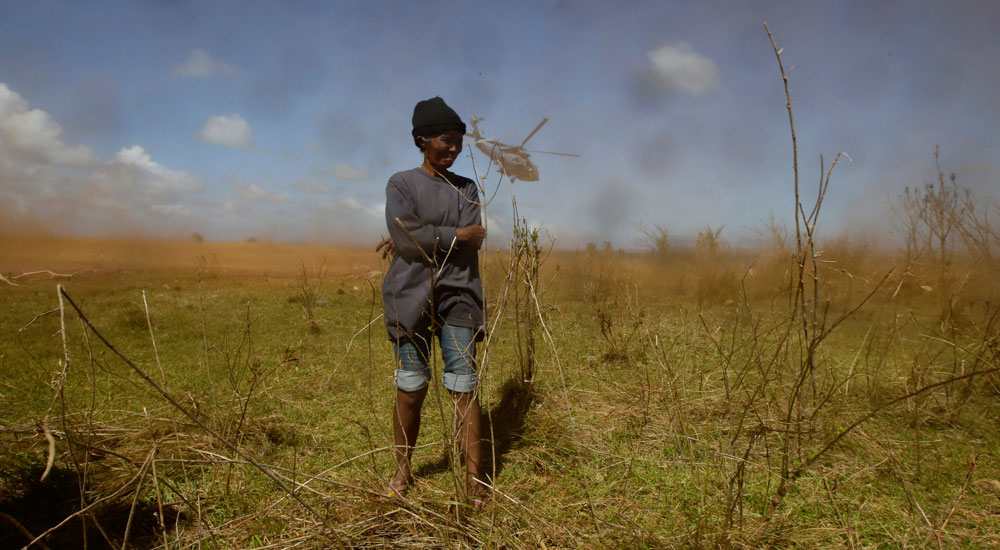
A trapped resident braves the dust created by a US Navy helicopter taking off, Saturday Nov. 16, 2013, on a devastated field on Manicani island, Eastern Samar province. The Food and Agriculture Organization has said the Philippines would need an initial $24 million (about P1.05 billion) to arrest the impact of Supertyphoon “Yolanda” on the country’s food production and supply security. AP
MANILA, Philippines—The Food and Agriculture Organization last week said the Philippines would need an initial $24 million (about P1.05 billion) to arrest the impact of Supertyphoon “Yolanda” on the country’s food production and supply security.
The FAO launched on Nov. 12 a flash appeal for such an amount, which its director general Jose Graziano da Silva said would cover the bill for immediate interventions in fisheries and agriculture.
Such interventions mean emergency and rehabilitation efforts, including those for storage and irrigation facilities and support to fishing communities.
Graziano da Silva said in a statement that Yolanda’s devastation—including damage sustained in the agriculture, fisheries and forestry sector—“puts the lives and livelihoods of many more at risk and can have a wider effect on the food supply chain and food security.”
The appeal is part of a United Nations-coordinated humanitarian flash appeal, launched also last Tuesday, that called for $301 million (P13.1 billion) in aid for the Philippines.
The Rome-based FAO has released $1 million (P43.6 million) from its own funds, meant mainly to provide seeds and fertilizer to affected farmers.
The FAO estimates that over one million farmers have been affected, hundreds of thousands of hectares of rice destroyed, and coconut production in affected areas are expected to have been severely impacted.
Further, the FAO said there has also been wide-scale destruction to storage facilities and rural infrastructure, including boats and fishing gear that were demolished.
The Department of Agriculture (DA) estimated that Yolanda’s bill was at least P6.88 billion, including P5.86 billion in crops and other produce and P1.02 billion in facilities, infrastructure and equipment.
In a separate statement, the Laguna-based International Rice Research Institute (IRRI) said the supertyphoon’s worst effects would be due to extensive losses in farm machinery, storage, housing and damage to roads and irrigation.
“These will need replacement and rehabilitation,” said Bruce Tolentino, IRRI deputy director general for communication and partnership.
“In the meantime, access to markets is constrained and household food stocks are down to zero, causing a spike in local food prices,” Tolentino said.
Citing data based on a joint assessment with the DA, IRRI said Yolanda affected areas account for 10 percent of the Philippines’ yearly rice output.